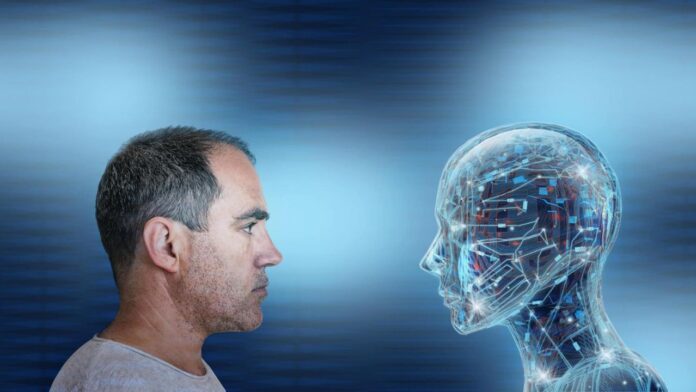AI will not replace individuals; rather, individuals utilizing AI will replace those not using AI. Experts predict that the rise of artificial intelligence will enhance the lives of most individuals in the coming decade. There are significant concerns about how AI advancements will affect human identity, productivity, and free will.
First, we’ll delve into the definition and current status of artificial intelligence before looking into its future. When machines or computer-controlled robots can perform tasks typically done by humans, it is referred to as artificial intelligence. Artificial intelligence is a field within computer science that is dedicated to creating smart devices capable of imitating human behavior.
Currently, our knowledge about the potential of superintelligence is limited. There is no way to predict when it might happen, whether in a few decades, centuries, or not at all. Many studies have inquired with AI specialists about their predictions regarding the timeline for achieving human-level AI. Well, guess what? Everyone comes back with the same answer: it’s uncertain because even the top experts in the field can’t reach a consensus. Think about the Puerto Rico AI conference in 2015. On average, the specialists there estimated the timeline to be around 2045, but some believed it could be much further in the future, possibly hundreds of years.
Viewing AI as merely a shift in job roles from people to machines would be too simplistic.
It is true that automation and AI have the potential to significantly change the labor market, and in numerous cases, they already have. Seeing this solely as a straightforward shift in employment from people to machines would be too simplistic. There are worries about job losses due to the impact of AI revolutionizing all industries. Actually, AI has also created new job opportunities in various industries. It is essential for humans to operate and supervise all machines. AI has replaced certain jobs, but it has also created more job opportunities for individuals.
Many people mistakenly believe that AI operates independently, without any human involvement. AI technology is not advanced enough to make decisions independently. It still requires input, particularly from machine learning engineers or specialists who handle tasks such as model development, data preprocessing, training dataset creation, variance and bias identification, and so on. AI models continue to rely heavily on input from humans. It has been mentioned that the initial model can be trained to consistently enhance its performance as time goes on.
Achieving a level of general intelligence similar to that of a human is the ultimate goal of artificial intelligence (AI), making it one of the most ambitious objectives in the field of science. It’s as challenging as other significant scientific endeavors, like understanding the origins of life or the universe or grasping the structure of matter. Over time, people have worked on developing different models or analogies based on the human brain in the quest to create intelligent machines. For example, during the seventeenth century, Descartes considered whether intricate mechanical systems, including gears, pulleys, and tubes, could imitate thought. After two hundred years, the comparison transitioned to telephone systems, as their interconnectedness appeared similar to that of a neural network. Currently, the dominant model is based on digital computers and computational methods. Therefore, this model will be the focus of the upcoming article.
Artificial intelligence is utilized in a wide range of industries for different purposes. For example, in the healthcare field, AI is used for disease diagnosis, treatment recommendations, and epidemic prediction. Finance involves assisting in fraud detection, risk analysis, and portfolio management. Moreover, AI plays a crucial role in the transportation sector by advancing self-driving cars, drones, and intelligent traffic management systems.
Yet, even with its vast possibilities, AI does have its constraints. An important limitation is the challenge of comprehending and making sense of AI systems. For instance, deep learning algorithms, a type of machine learning, function as “black boxes,” which can make it challenging to understand how they make decisions. Lack of transparency in AI systems can hinder trust, especially in critical sectors such as healthcare and finance.
AI’s future brings a mix of excitement and hurdles. AI technologies are making significant progress, with new advancements appearing annually. Deep learning, neural networks, and quantum computing are some of the cutting-edge technologies in AI. Deep learning is a type of machine learning that allows computer systems to learn from large amounts of data through neural networks. Neural networks are a type of AI model that simulates the brain’s functionality. Quantum computing uses quantum mechanics to carry out intricate calculations much more quickly than traditional computers.
There are numerous potential applications for these new technologies. Consider how deep learning and neural networks can contribute to creating highly precise AI models for sectors such as healthcare, finance, and transportation. Quantum computing could completely transform areas like materials science, cryptography, and drug discovery.
As AI technologies advance, ethical considerations are becoming more crucial. An important ethical consideration revolves around the potential effects of AI on job opportunities. As AI systems advance, there is concern about potential job losses in the manufacturing and customer service sectors. Another important ethical consideration is bias. AI systems can produce unfair outcomes if they are trained on biased data.
What impact will the increasing presence of artificial intelligence have on society in the long run? We consider the most likely outcomes, from a future in which AIs solve all our problems to one in which they endanger our survival.
The progress of AI presents great opportunities for innovation and growth in various industries, allowing companies to streamline operations, cut costs, and introduce new products and services. Yet, advancements come with obstacles such as job displacement, bias, and privacy concerns. Job displacement is a significant concern due to AI’s increasing ability to handle complex tasks, potentially resulting in layoffs, particularly in manufacturing and customer service. We need to invest in retraining programs for workers who have been displaced. Concerns about bias and privacy are important when it comes to AI. The fairness of AI depends on the training data it receives, and the use of AI for surveillance can lead to privacy concerns. We can address this by creating ethical AI frameworks and enhancing data privacy and security measures.



























